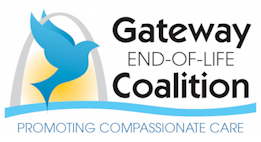Advance Care Planning
Advance care planning involves learning about the types of decisions that might need to be made, considering those decisions ahead of time, and then letting others know—both your family and your healthcare providers—about your preferences. These preferences are often put into an advance directive, a legal document that goes into effect only if you are incapacitated and unable to speak for yourself. This could be the result of disease or severe injury—no matter how old you are. It helps others know what type of medical care you want.
An advance directive also allows you to express your values and desires related to end-of-life care. You might think of it as a living document—one that you can adjust as your situation changes because of new information or a change in your health.
– Source: NIH National Institute for Aging
National Health Care Decisions Day
National Healthcare Decisions Day (NHDD) exists to inspire, educate and empower the public and providers about the importance of advance care planning. For 2023, NHDD is April 16 but it’s really celebrated all Month.
NHDD, run by The Conversation Project, exists as a 50-state annual initiative: a key goal being to encourage people to express their wishes regarding healthcare and for providers and facilities to respect those wishes, whatever they may be.
The Conversation Project
Advance Care Planning can be confusing.
Here are a few of our favorite resources to help:
5 Steps for Advance Care Planning
